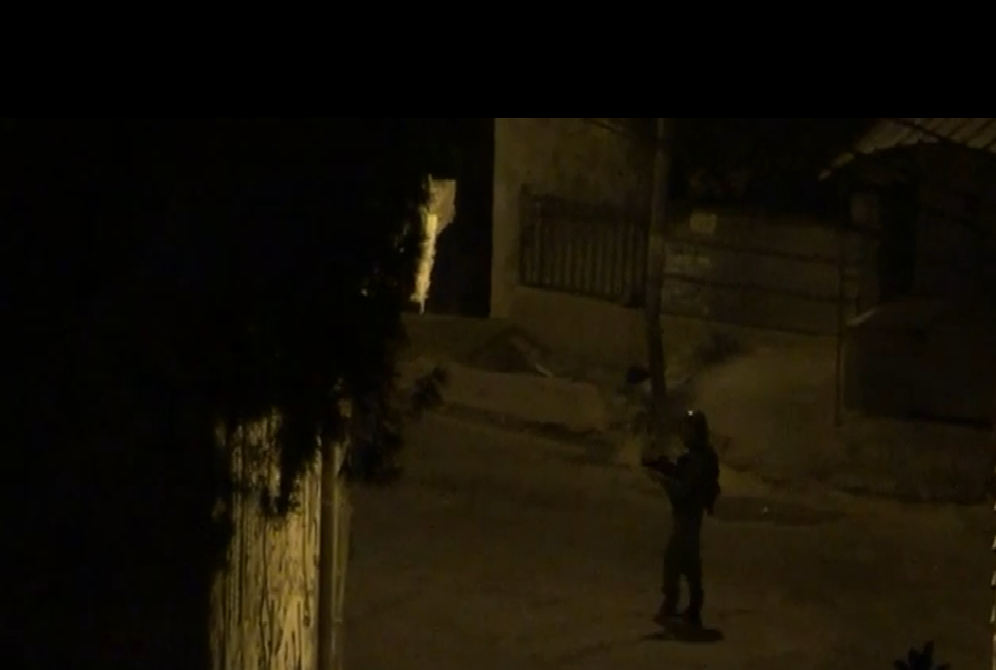Tag: Night Raid
-
Three killed in Qalandiya: Protests spread across West Bank
26th August 2013 | International Solidarity Movement, Ramallah Team | Qalandiya Refugee Camp, Occupied Palestine At around 2am on 26th August 2013, eleven military jeeps invaded Qalandiya refugee camp during an operation to arrest a recently released prisoner. Residents of the camp tried to stop the army from arresting the man by throwing stones at…
-
Video: Settlers and soldiers storm Joseph’s tomb in Balata
21th August 2013 | International Solidarity Movement, Nablus Team | Balata Refugee Camp, Occupied Palestine Last night, hundreds of settlers accompanied by Israeli forces invaded Balata refugee camp in Nablus to pray at Joseph’s Tomb. Israeli soldiers shot tear gas canisters and sound bombs at residents who protested the incursion – three youths were reportedly…
-
UPDATED: Three youths arrested in Kafr Qaddum night raid
15th August 2013 | International Solidarity Movement, Nablus Team | Kafr Qaddum, Occupied Palestine Update 19th August: The three young men from Qaddum had court in Salem today. One of them, Bashar, was released today, but the situation for the other two is less certain. They are currently still imprisoned and are reportedly facing charges which…

